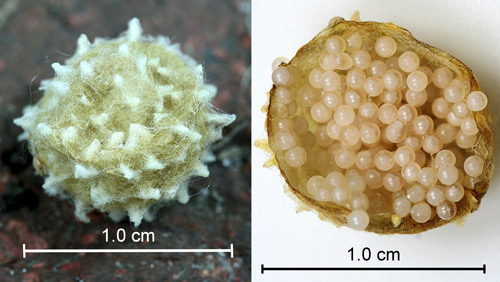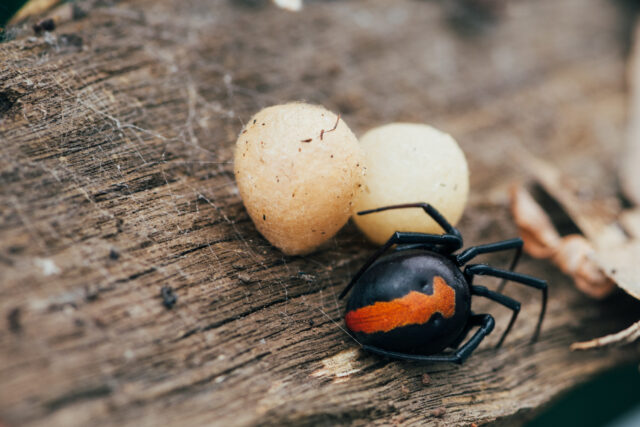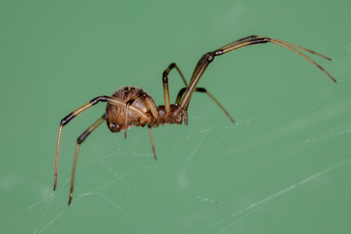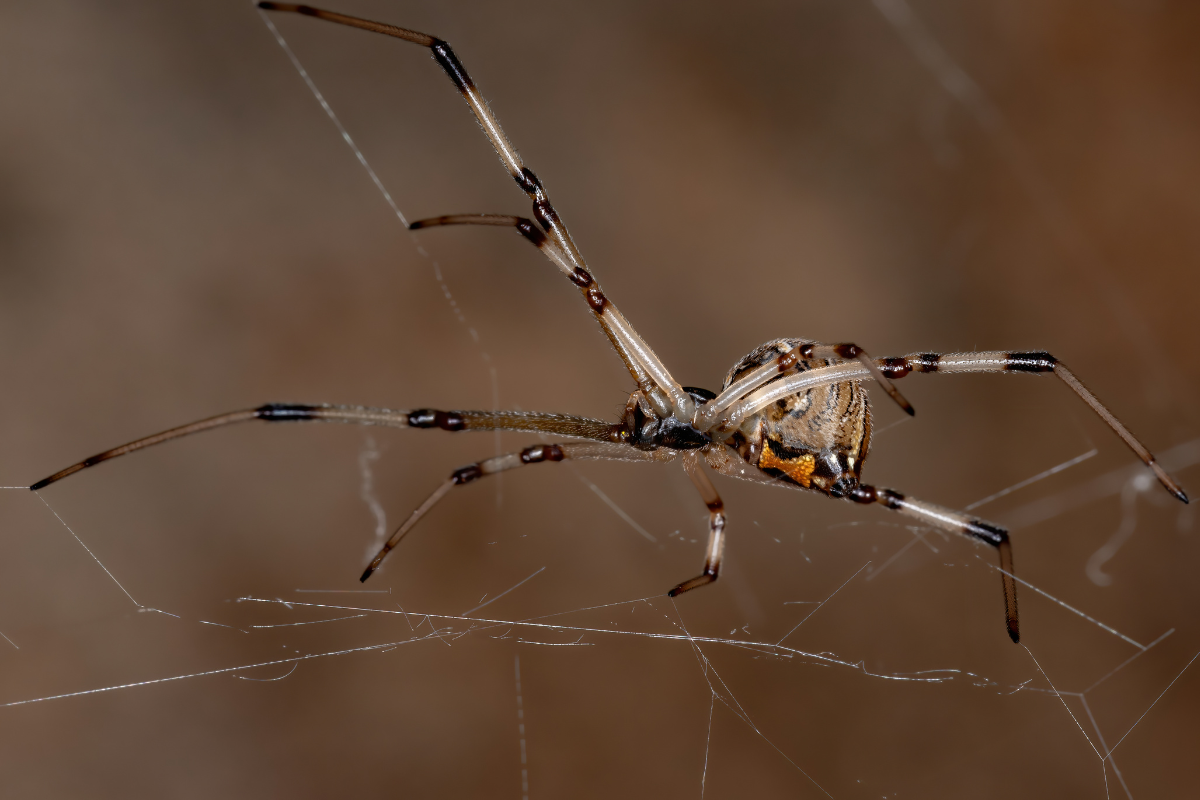Living in San Diego, you’ve most certainly heard of the black widow spider. The female species of this spider is well known for it’s poisonous bite. Did you know that in recent years, a new species of widow spider has invaded San Diego County? Here’s everything you need to know about some of the most poisonous spiders in Southern California: Black Widows vs Brown Widows. If you have a pest emergency, call pest patrol today for immediate pest control services in San Diego County.
The Brown Widow – An Invasive Species
The brown widow spider, Latrodectus geometricus, was first discovered in 2003 by researchers in Torrance, CA. They have since been found spreading throughout Southern California. Researchers report anecdotal evidence that brown widows are displacing black widows in urban environments. The good news for residents is that bites are rarely reported because of their mild effects and infrequency compared to black widows.
Like black widows, brown widows are predominantly outdoor spiders. Compared to black widows, they tend to inhabit more exposed outdoor habitats such as under eaves or window ledges, garden furniture, and recessed handles of plastic trash bins. Black widows, by contrast prefer more protected areas like garages, sheds, wood piles, or dry, protected crevices and holes. Brown widows prefer urban environments compared to black widow’s more rural and agricultural habitats.
The easiest way to determine if you have a brown widow problem is by looking for their egg sacs. These sacs have pointy spikes compared to black widows’ smooth, round egg sacs.

Black Widow or Brown Widow: The Difference
Other than the obvious color difference and their egg sacs, there are a few other ways to tell if a spider is a brown widow or black widow.

- Both spiders have the red hourglass shape on their abdomen but the brown widow’s is slightly fainter.
- Brown widows are slightly smaller – growing only to one in max compared to a black widows 1 ½ to 2 inches.
- Black widows are shiny in color while brown widows are striped and more opaque.
- Black widow females tend to eat their male counterparts after mating. This behavior is yet to be observed in brown widows.
- Black widows are more territorial and likely to bite if guarding eggs or surprised. Brown widows will only bite if forced against human skin. They prefer to run away.
- Both black and brown widows poison can be fatal but brown widows make far smaller amounts.
-

Female brown Widow Can black widows be brown? Yes in their juvenile and male forms.
When it comes to bites, the scale is as follow from most mild to most sever: Brown widow vs black widow vs brown recluse bite.
Black Widow and Brown Widow Control
Like many spiders, both black and brown widows can be difficult to control. They enter your property through “ballooning.” When spider eggs, hatch, their spiderlings can catch warm wind updrafts. They put their abdomens in the air and release a small string of web also called silk. The silk acts as a kite, pulling the spiderlings into the air to spread to another location. This could be a few feet or a few miles! Ballooning spiderlings have been captured at 10,000 feet from the ground and 200 miles offshore. Due to this continual ballooning, spider control must happen periodically throughout the year.
Other things you can do to prevent spiders on your property is remove their habitats. Wood piles, debris, holes and cracks and entry points throughout your house can be perfect places for a brown or black widow to live in the house. Regularly clean areas with spiderwebs and egg sacs and always look before reaching into dark, protected areas. Think garbage and recycling bin handles! Due to their poisonous nature, many of our clients ask us if they should kill a black widow spider in their house. If you’d prefer, Call us for professional black and brown widow spider control in San Diego.

